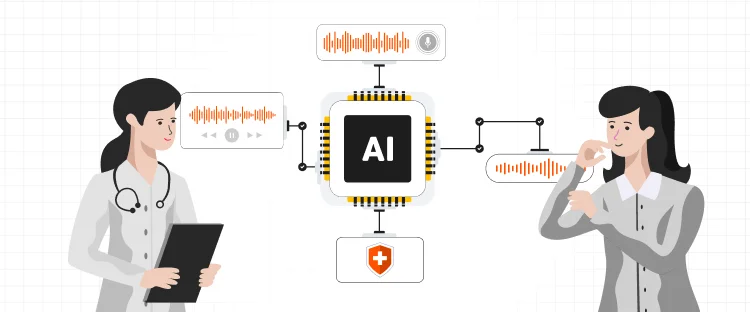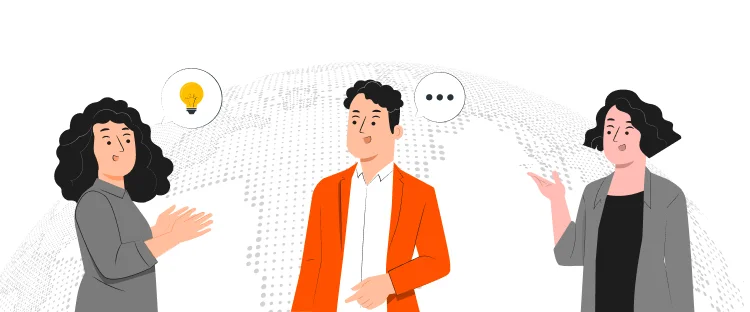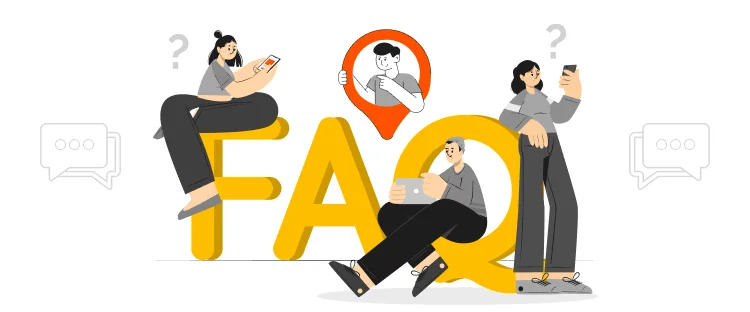Did you know that many of the languages spoken in the world today are on the brink of extinction? There are 7102+ languages and this number is a rapidly dwindling one as there are more than 46 languages that have only one speaker left, and they are likely to die with the death of these speakers.
However, there are some languages that have survived through the ages, bearing the brunt of changing times and intermixing of cultures. These languages have continued to evolve through the ages, and hold an element of antiquity that is a distinction in itself. These languages are:
Country: Israel
Spoken by: More than 9 million people worldwide
Hebrew, the language primarily spoken in Israel is also known as the language of the Old Testament. The oldest Hebrew inscriptions date back to approximately 3000 years ago and became defunct between 200-400 CE when it was abandoned as an everyday spoken language.
With the advent of Zionism, the language again gained momentum and is now spoken by Jews by over 9 million people worldwide.
Country: Republic of Ireland
Spoken by: 1,761,420 people approximately
Irish Gaelic dates back to Ogham inscriptions from the 3rd century CE and was the language of an ancient Celtic tribe. After the 3rd Century, this language evolved into Primitive Irish language. Presently, however, it is now spoken by a minority of natives in Ireland and is known as a second language by people in Northern Ireland.
Country: Iran, Afghanistan and Tajikistan
Spoken by: 110 million people approximately
One of the oldest languages in the world and a language of literature and poetry, Persian (also known as Farsi) dates back to 486 BC. Originally a language of Achaemenid Empire, the Persian language spread throughout Iran and Central Asia after several conquests.
Even now, it is spoken by over 100 million speakers around the world, exerting its influence on other languages, especially Urdu.
Countries: India, Sri Lanka, Singapore
Spoken by: 70 million people approximately
Tamil is probably one of the most ancient language in this list of oldest languages. A Dravidian language, still widely spoken in South Indian state of Tamil Nadu, it is also the official language of Sri Lanka and Singapore.
Country: Lithuania, Poland
Spoken by: 2.9 million people approximately
Retaining the essence and characteristics of older origin languages of Indo-European languages, the earliest written record of Lithuanian dates back to 1500 AD. Also considered as the most conservative Baltic language, it still resembles ancient languages such as Sanskrit an Ancient Greek.
Country: France and Spain
Spoken by: 751,500 people approximately
Deemed to be a surviving language from the pre-Indo-European era, Basque is a language unlike any other, mainly due to its history and origin. It is an isolated language spoken only in the Basque Country in Northern Spain and Southwestern France.
There is no conclusive evidence suggesting the origin of this language but it is believed to predate Indo-European’s arrival on the continent. Due to the ambiguity surrounding its origin, it is considered as the oldest language in Western Europe.
Country: Saudi Arabia and 28 other states
Spoken by: 420 million people approximately
The Arabic language, one of the oldest and the 5th most widely spoken language in the world today. Arabic dates as far back as the Iron Age and had been a language of science, mathematics and philosophy.
The status of Arabic as the official language of United Nations has lent more popularity to the language, with approximately 420 million speakers of Arabic today and is the official language of the huge Arab world.
Country: Republic of Macedonia, isolated parts of Serbia, Romania, Bulgaria and Albania
Spoken by: 2 million people approximately
There are some languages that have roots as far back as the 1st Century BC. Macedonian is such a language that is believed to be one of the Greek dialects that was replaced by Attic Greek and lost usage around 4th Century BC.
Country: China, Singapore and Taiwan
Spoken by: 1.2 billion people approximately
Chinese language is the most widely spoken language in the world which dates back to 3000 years ago and dominates approximately 16% of world’s population. While the prehistoric form of Chinese is no longer used, several dialects have sprung from it—namely Mandarin and Cantonese.
Country: Greece and Cyprus
Spoken by: 13 million people approximately
The Greek language, deemed to be the language of philosophers, thinkers and intellectuals, the origin of Greek are somewhat complicated and difficult to understand, with ambiguities on its origin.
The Modern Greek evolved from its previous version and holds the record for being the world’s oldest living language, with a gigantic written record of over 34 centuries still preserved!
Although the languages have evolved from their ancestral dialects and forms, merging to form new languages, it must not be forgotten that languages, indeed, hold the key to communication in this era of globalization.
The importance of being a bilingual speaker becomes evident when fluency in more than one language puts you one step ahead of the competition. In the words of Frank Smith, “one language sets you in a corridor of life, while two languages open every door along the way”. It is, therefore, important that languages must be given their due share of importance as they can be the real key to attaining global audience and customers.

Colorado is said to be one of the best places to do business because the business environment is very friendly
Read More
The global marketplace has become an attractive place for brands and businesses, where they strive to create a presence of
Read More
CAD, or computer-aided design and drafting (CADD), is the use of computer technology for design and design documentation. CAD software
Read More
Many global companies, foreign governments and Iranian are hoping to see an increase in investment in Iran after declaring the
Read More
Artificial intelligence has taken a big space in almost every industry. There is also a widespread acceptance that AI is
Read More
Persuasion is all about manipulating other people behavior. At first it might sound immoral but it doesn’t have to be.
Read More
Now days everyone is searching for good ideas for their company they wanted to be more creative, they wanted to
Read More
Technology has now much diverse roots in this age of development. Now it is not wrong to say, that you
Read More
Localization is the practice of altering the functional properties of a product and also its characteristics. This is easily done
Read More


Document Translation
Professional document translation by native expertsApp Localization
Get more downloads by adapting your app for different target marketsVideo Translation
Multilingual translation and subtitling servicesWebsite Localization
Adapt your website into multiple contexts for global reachSoftware Localization
Adapt your software for global usersGame Localization
Reach new players with localized gameplayMTPE
Refine AI translations for natural fluencyBusiness Translation
Professional translation for business documents and websitesDTP & File Conversion
Professional DTP and File conversion, supporting multiple file formatsProofreading
Perfect your content with expert review© Copyright 2025 MarsTranslation